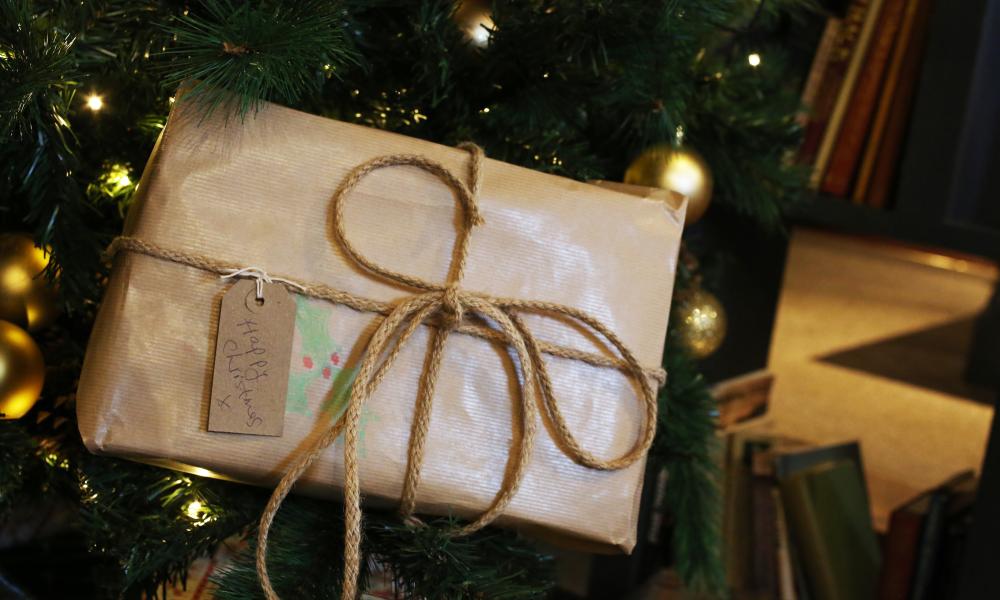
Presents
1. Quality not quantity: Around half of UK adults say they have received gifts they don't want at Christmas1. When buying gifts, think less but better. Put time into picking a quality item that will last, and be loved, for a long time. This reduces the chances of gifts going to waste and will ensure that your gift lasts for many years to come. This could also be better for your wallet by purchasing one quality gift, rather than lots of cheaper, disposable or poor-quality items.
2. Gift an experience: Gifting an experience for your loved ones will help to reduce demand for physical resources, and avoids filling homes with unwanted presents. Bring people together by gifting your time, or with purchased experiences. There are lots of options to choose from that will reduce your Christmas footprint. You could buy tickets to shows, concerts or events. Or, a more wallet-friendly alternative is to gift a homemade coupon book, donating your time to help babysit, or to visit a local park, maybe a nice picnic in the summer. Other ideas include making a restaurant reservation or giving a gift card. Why not plan a day out to a National Trust or Wildlife Trust location, or even make a homemade meal. It also makes your gift last longer – having something to look forward to later in the year.
3. Think about materials: Look at the materials gifts are made from and keep sustainability in mind. Ensure any wood, card, bamboo or paper gifts are made from 100% recycled or Forest Stewardship Council (FSC) certified materials. Avoid single-use plastic items (especially glitter) that can’t be recycled, and look for things like Fairtrade or Organic-certified food and clothing. Buying second-hand items saves on resources needed to make new products, helping to reduce emissions and create a more sustainable future. Vintage clothes, books, home furnishings, and refurbished technology can all make great sustainable gifts.
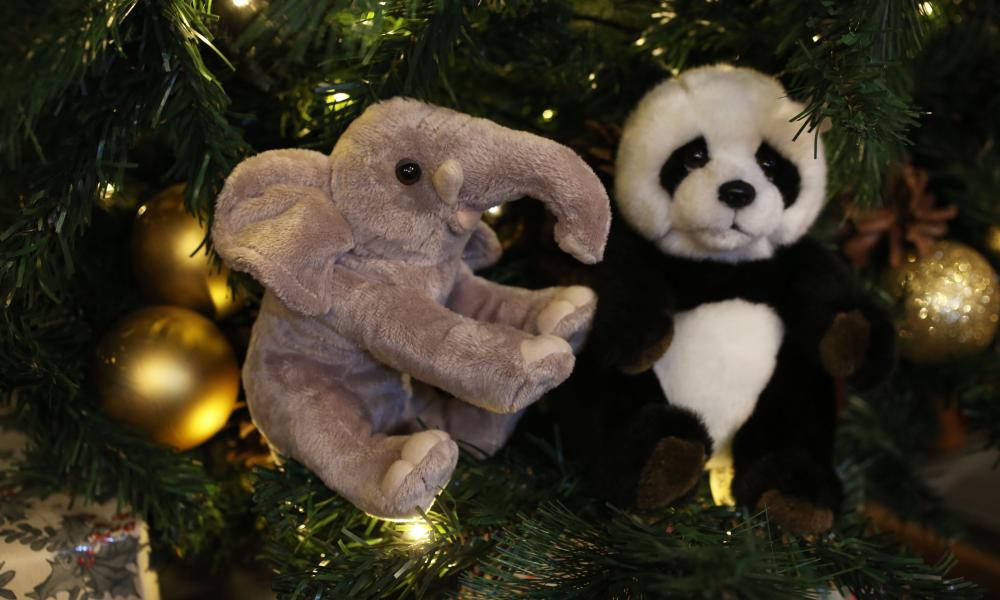
Presents
4. Remove packaging: Reduce waste even further by buying gifts with little or no packaging. Sometimes shopping local can help with this, especially if you have a local refill shop. If you must use or buy packaging, look for recycled or recyclable materials. Avoid plastics where possible, and don’t forget your reusable bags to carry all your shopping home! If you’re more inclined to shop online, the WWF-UK shop has a selection of gifts that won’t cost the earth.
5. Test your wrapping skills: Look for cards and wrapping paper made from 100% recycled or FSC-certified paper. Avoid plastic ribbons and tape, or foil-backed and glittery wrapping paper. Choose cards that you can recycle (this means no foil or glitter!). Check out some tape-free wrapping techniques online such as furoshiki. This is a traditional Japanese method of using cloth to wrap and transport gifts. It makes for beautiful, unique, and reusable packaging. Each year it’s a good idea to get into the habit of saving ribbons, gift bags, and cards to make your own decorative tags and present wrapping for the next year.
6. Give a gift that lasts this year: If you’re struggling for a gift idea - why not support WWF’s work by choosing an animal adoption or one of our memberships? These are perfect gifts for nature and wildlife-lovers wanting to help the environment. From Animal Adoptions to our range of Memberships, there is a gift for environmentalists of any age. Give a loved one a gift from WWF, and together we can bring our world back to life.
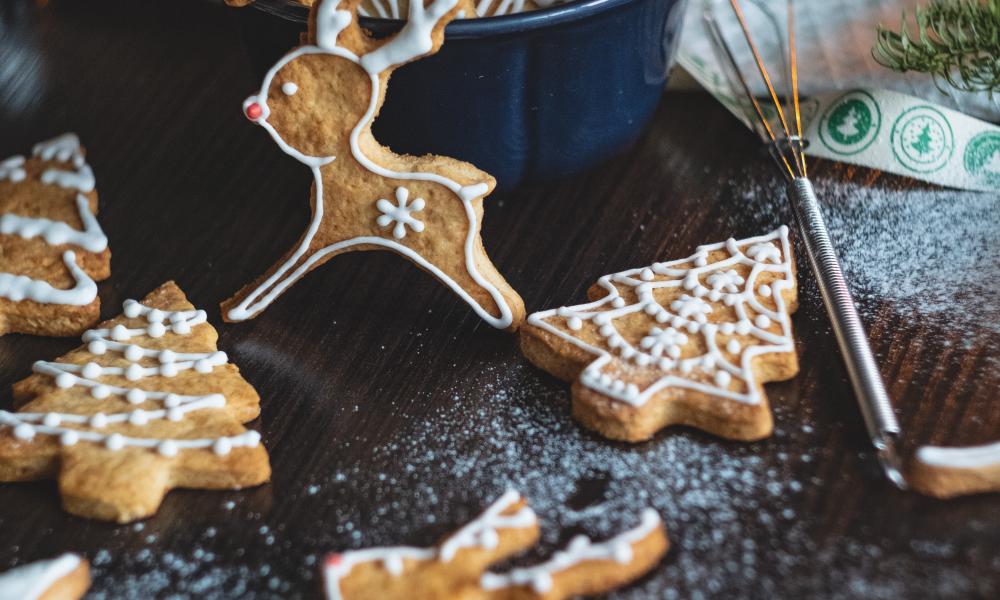
Food
7. Cut your food waste: Food production is the biggest cause of tropical deforestation. Cut waste by planning ahead - be realistic about how much food you need and use up leftovers. Instead of clingfilm, use Tupperware (and reuse plastic food containers saved after takeaways), aluminium foil, and wax cloth covers to keep leftovers nice and fresh! If you’re visiting friends or family, remember to take some containers with you so you can help share the leftovers and take them home.
8. Eat More Plants: Poultry is in the top 10 most wasted foods in the UK and 100,000 tonnes of it ends up in the bin every year2. Eating more plant-based meals is good for you and the planet. The livestock industry generates 14.5%3 of all man-made greenhouse gas emissions. It requires huge amounts of space, water and feed. Instead, you could try a meat alternative.
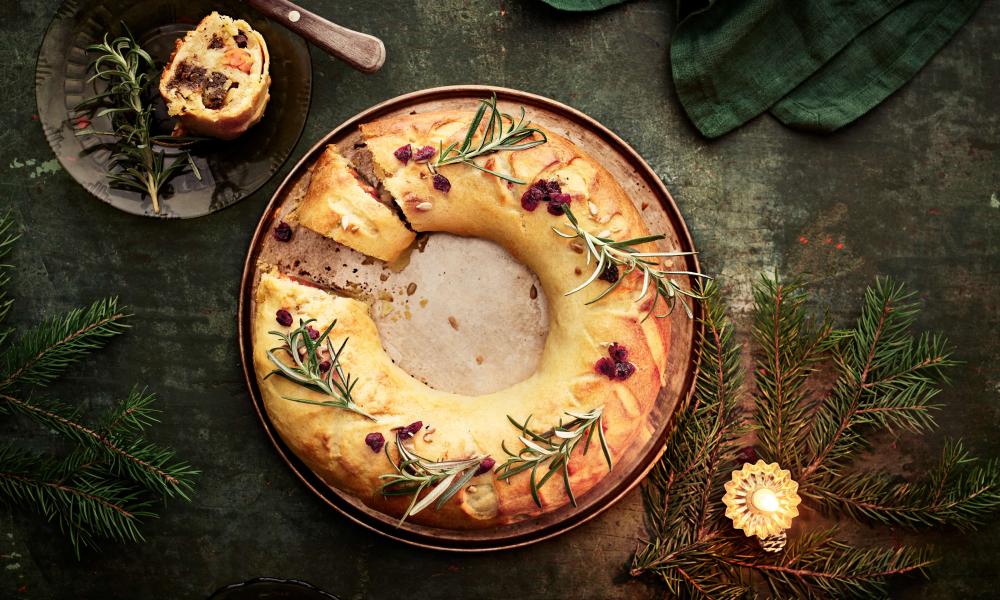
Food
9. Know your logos: Search for sustainability certifications for the food and drink you’re serving this festive season. If products contain palm oil, make sure it’s RSPO-certified, if you’re serving fish look for MSC-certified wild seafood, and ASC-certified farmed seafood. For tea, coffee, chocolate, and sugary items, look for Soil Association Organic or Fairtrade certifications. To help you, the Impact Score app can show you sustainable products in UK supermarkets.
10. Eat seasonally: Although we need to eat a variety of fruits and vegetables to stay healthy, you can help to reduce the carbon footprint of your festive meals by buying seasonal produce. This means resisting asparagus which will have been flown to the UK from Peru! Instead, focus on root vegetables like potatoes, parsnips, carrots and beetroots, and winter vegetables like cabbage, squash, broccoli and cauliflower. For fruit, we can choose UK produce like apples and pears. We don’t have to only eat what’s produced in the UK – instead, we can supplement UK produce with fruits and vegetables that have been shipped to the UK by boat such as clementines, pineapples and pomegranates. By being conscious of what we’re importing we can reduce the emissions from flying food to the UK. This can also help support UK farmers. To find out more, take a look at the work being done by Riverford and use this handy guide to see what fruits and vegetables are in season every week of the year.
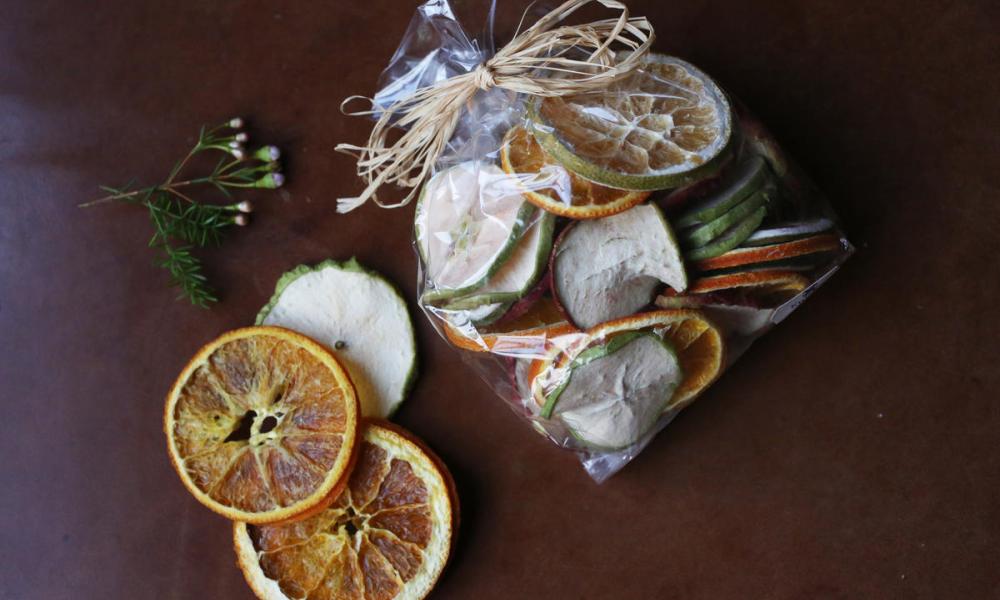
Decorations
11. Table Manners: Many Christmas crackers are not recyclable, and the toys inside are often made of plastic that is thrown away after use. Instead, look out for FSC-certified crackers which mean that the packaging is made from sustainably sourced paper and card. Always check what’s inside a cracker to make sure you get something that people will reuse (and ask if you really need them in the first place) Reusable DIY crackers are another great option. Fill them yourself with sustainable options (like chocolates) and personalised festive favours.
Avoid single-use tablecloths and napkins. Instead, use material versions which have a longer lifecycle than their paper equivalents as you can wash and keep them. Cranberry sauce stains? No problem! Washing on a quick wash setting at lower temperatures will help to reduce your environmental footprint too.
12. Think about your lights: Use LED lights on your Christmas tree, they use less energy, last longer and look just as good! Also, switch off your lights at night - it's safer and won’t cost the earth. Try to choose lights that have a plug over battery powered, and if you have to choose a battery powered item, make sure you purchase rechargeable batteries (and recharge them in future).
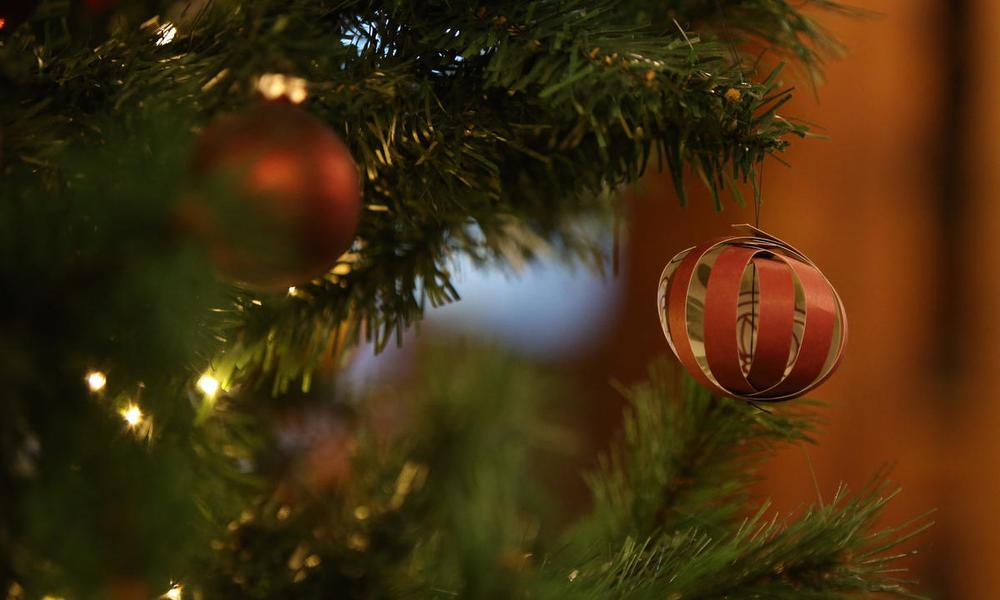
decorations
13. Make your own decorations: Save yourself some money by upcycling old decorations. Or make your own using spare material found around the house, like turning old paper into paperchains, or old clothing into decorations. We sell DIY Christmas decorations in our shop. They make a great tree ornament and/or gift! They’re made from felt derived from recycled plastic bottles and the thread comes from plants.
14. Don’t forget the tree! If buying a plastic Christmas tree, make sure that you’re going to reuse it for at least 10 years (so pick a good one!). Otherwise, it may be better to buy a living tree from a sustainably managed forest. If buying a real tree, make sure it’s FSC-certified. Be clear on how to dispose of your tree once the season is over. If it is potted, think about replanting it in your garden. Never plant a Christmas tree in the wild (they’re a non-native species in the UK) or dump old trees to decompose in a wild environment (this is fly-tipping and can cause environmental harm). Instead, look for local recycling options for your tree which will turn it into wood chips or compost. Check your local council website for their sustainable collection services. Purchasing a potted tree is a good solution as you can reuse it each year! Why not go a step further and rent a Christmas tree? This is where you care for a tree over the festive period and return it to be replanted for use again the next year.
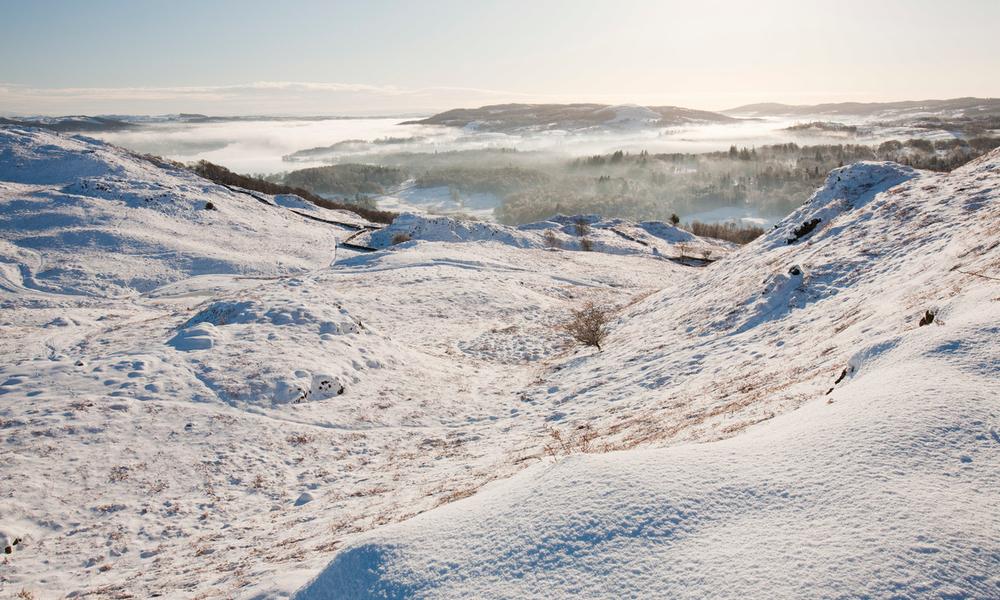
Out and about
15. Dressing for the party season: This year, choose the sustainable option and try to reimagine the clothing that you already own by repurposing items into something new! If you can’t find anything to wear, ask your friends or family if you could borrow something. You never know, they might have a costume kicking around at the back of a cupboard. Alternatively, try looking around second-hand shops or using second-hand apps, for your a new (but old) Christmas party outfit.
16. Reconnect to nature: The festive season is all about spending time with friends and family. Try making one of your festive activities a walk around your local park or nature reserve. Winter is a great time to spot all sorts of over-wintering birds. Download the Seek app, which lets you identify and discover more about local species. It also helps scientists to track global biodiversity!
This time of year, can also be quite stressful for many of us. Spending time in nature is brilliant for our mental wellbeing, it can reduce stress and anxiety, lift our mood and help our minds rest. As part of our Prescription for Nature campaign we’re encouraging people to get their daily dose of nature. From soundscapes and insect-spotting to house plant-potting – we’ve got a prescription to suit everybody.

 Learn about the effects of climate change
Learn about the effects of climate change
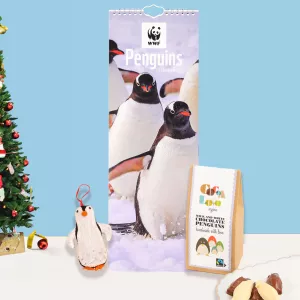 Here's our green Christmas gift guide
Here's our green Christmas gift guide
 The Big Winter Wander
The Big Winter Wander
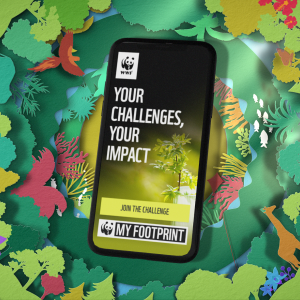 Download WWF's My Footprint app
Download WWF's My Footprint app